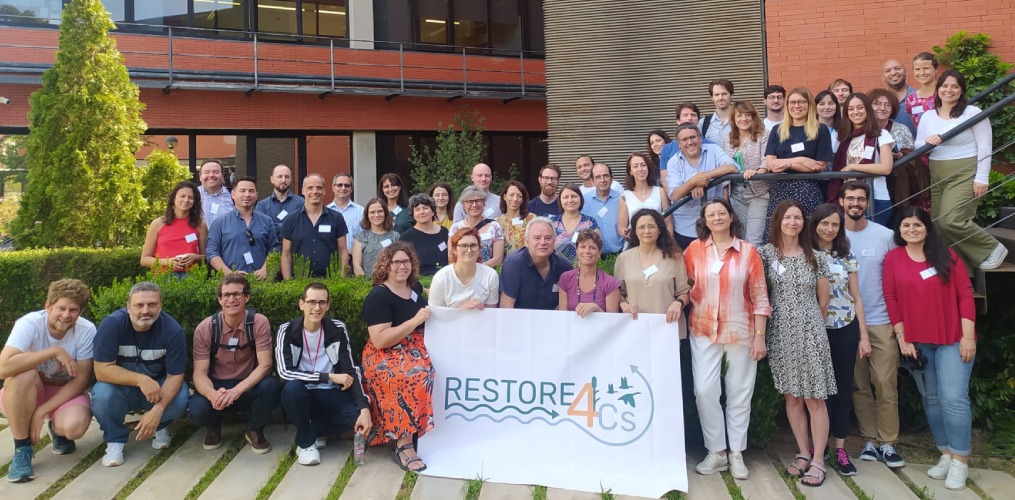
From 27 to 30 May, the RESTORE4Cs 4th General Assembly took place at the University of Valencia in Spain. The Assembly included discussions on project expectations, policy roadmaps, data repositories and more.
RESTORE4C aims to assist in implementing Climate and Biodiversity policies under the European Green Deal by collecting data on restoration and land use management, developing integrated assessment tools, creating a European Community of Practice (ECoP), and collaborating on a multi-actor approach.
Prof. Joaquin Baixeras from the University of Valencia opened the meeting, followed by Case Pilot representatives discussing project expectations and interactions. As part of the project, RESTORE4Cs has identified six Case Pilots, including coastal wetland ecosystems of different conservation statuses and types of restoration actions. These sites provide a good geographical representation of Europe and its biogeographical regions: Mediterranean, Atlantic, Baltic and the Black Sea. The other presentations focused on policy roadmaps, analysis methodology, models, and scenarios.
On 28 May, the European Community of Practice for Wetlands Restoration launched its roadmap. The meeting included communication updates, the launch of a documentary trailer, the finalisation of the filming schedule, stakeholder interviews, fieldwork and laboratory analyses, and the presentation of project information layers.
On the last day of the RESTORE4Cs 4th General Assembly, the consortium visited the local Case Pilot, Marjal dels Moros, and saw the project’s sampling zone. They also enjoyed visiting the Albufera Natural Park and a boat ride on the Albufera Lake. To learn more, please visit: https://www.restore4cs.eu/restore4cs-4th-general-assembly/